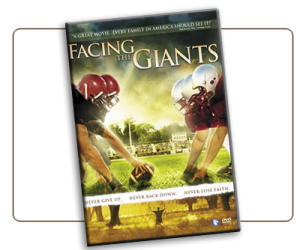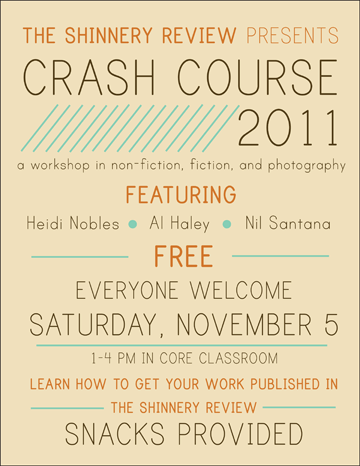FLSP 386 Syllabus Spring 2012
FLSP 386 ADVANCED SPANISH COMPOSITION
Professor: Harland Rall Class: MWF 9 AM
Office: 134 Admin, x2384 Class: Admin 136
Hrs: M/F 3-5 PM
TR 9-11 AM
Text
Bleichmar, Guillermo y Paula Cañón. Taller de escritores, Grammar and Composition for Advanced Spanish, 2012, Vista Higher Learening
Composition Focus
Writing will be required relative to distinctive functions: 1) Description (places, people), 2) Comparison, 3) Narration in Present, 4) Narration in the Past, 5) Opinion Essay, 6) Editorial, 7) Descriptive Editorial, 8) Personal Presentation Letter, et al. Each function requires its appropriate grammar structures. The student is responsible for studying these requirements as needed in the course as they are essential to competent communication. Grammar as support for effective Composition is the essence of each chapter and the student will find ample explanation and exercises as support for the composition assignments. Since we will also use the SuperSite with this text, most of the grammar study will be considered as individual student initiative as we concentrate on the actual production of the writing functions.
Writing Intensive
Writing will be a significant segment of this course and will be required in various formats: informational, persuasive, and analytical. Informational refers to any format of presentation of primary research materials and their basic contents in a summarized form. Analytical refers to an investigation into the validity and usefulness of information relative to a stated problem or need of understanding. Persuasive refers to the presentation of information in any format so as to convince the reader as to a course of action or an adoption of a point of view.
Writing samples will be gathered from each student and analyzed within the ACU program of Writing Across the Curriculum. In participating in this course, you, the student, give your permission to the professor to select some of your writings to be used and evaluated within this program.
ACU Writing Center
They have trained and experienced tutors who will provide feedback. The services are free and should be utilized for all stages of the writing process. 674-4833 Even though this course will be conducted in Spanish (and all writing samples will be in Spanish), the ACU Writing Center is an excellent resource for conversations about textual organization. The Everyday Writer by Andrea Lunsford is also recommended as a resource for orthography.
Writing Competencies (included in this course)
1. Increase your competency in grammatically correct written language while completing the functions listed above.
2. Demonstrate appropriate compositional strategies for proper communication utilizing the functions listed above.
3. Demonstrate an Advanced Low level of linguistic proficiency (or greater) relative to written materials as defined by the American Council of Teachers of Foreign Language (ACTFL) standards.
Measurements (corresponding to the objectives):
1. Each student will complete a portfolio of materials written for class. Each written assignment that is kept in the portfolio should contain the original text, any text editions made by the professor and/or colleagues, and the final text.
Given the fact that most assignments will be aided by the SuperSite, grades for each manuscript will be assigned according to the number of errors (grammatical) found. This measure should depict each student’s progress throughout the semester.
2. Each chapter of the text focuses a set of compositional strategies that will aid the successful completion of the required language function. Through peer editing and class discussions, the original and corrected copies of materials written as class assignments should demonstrate the inclusion of these strategies.
Exams during the semester will require the proper utilization of these strategies and may include one or all of them at any given time. All written exams should be included in the materials within the portfolio.
3. The Final Exam—if passed by the student—will meet this standard. A student who is not able to produce proper written communication in fulfillment of these functions will not perform at the ACTFL Advanced Low level. This level is the indicator for Pass/Fail relative to the class. The actual letter grade assigned to those who pass will be determined by the grading procedure in this syllabus.
Course Structure
Initial class sessions will focus methods, perspectives, structures and strategies for successful written communication. Utilizing textual selections we will detect and analyze successful strategies used by professional authors.
Frequent writing assignments will be assigned that enable students to implement these strategies in their own contexts. Subsequent class periods will allow student groups to peer edit each other and to improve their work.
Grading Structure
1. Numerical grades will be calculated for each original text written for class. 3 x 15 = 45 pts
Grading example: In order to calculate the points earned by each essay: multiply the number of points for the essay by the percentage grade. An essay grade of 80% means that you receive 2.4 points of the 3 points on the essay. The essay grades will NOT be averaged before the calculation of points.
2. There will be one assignment relative to the University Writing Intensive Program. It will be assigned as an out-of-class task and will be 5 points of the Final Grade. These points are assigned as a completion activity.
3. Each original text written for class will be corrected and edited into a final draft. This process will Each chapter will have an out-of-class essay. Each one counts for 7 pts. 7 x 5 = 35 pts
Grading example: In order to calculate the points earned by each essay: multiply the number of points for the essay by the percentage grade. An essay grade of 80% means that you receive 5.6 points of the 7 points on the essay. The essay grades will NOT be averaged before the calculation of points.
4. Class participation and discussion relative to grammar structures, strategies found in authored texts, and peer editing will count for 15 points of the Final Grade.
Based on a point system of 100: 100-90=A, 89=80=B, 79-70=C, 69-60=D, 59->=F
Attendance Policy
You may have up to 6 unexcused absences along the semester. Excused absences are limited to university functions and obligations wherein an official excuse letter is sent from the appropriate Dean. If you accumulate 8 absences your final grade will be lowered one letter grade. 9 absences will cause a second letter grade drop. More than 6 absences will mean that a grade of WF may be processed by your professor in the Registrar’s Office.
Students who are absent from a class must communicate with other students or the professor about materials and assignments for the next class. Out-of-class written assignments are due at the beginning of the class when due. If an assignment is due and you have to be absent either send your assignment with a classmate, drop it by the professor’s office or turn in the assignment before the class that you will miss. Any assignment that is not turned in on time will be considered as late. If turned in on the same day that it is due, the assignment will accrue a penalty of one letter grade or 10 points. It is the professor’s discretion to accept any materials turned in after the day they are due and assess the appropriate grade penalty.
About Course Policies
University and class specific policies: All university-wide policies and regulations contained in the Abilene Christian University Student Guide: Student Code of Behavior and Discipline will be observed in this class.
Academic Integrity Violations of academic integrity and other forms of cheating, as defined in ACU’s Academic Integrity Policy, involve the intention to deceive or mislead or misrepresent, and therefore are a form of lying and represent actions contrary to the behavioral norms that flow from the nature of God. Violations will be addressed as described in the Policy. While the university enforces the Policy, the most powerful motive for integrity and truthfulness comes from one’s desire to imitate Gods’ nature in our lives. Every member of the faculty, staff and student body is responsible for protecting the integrity of learning, scholarship and research. The full Policy is available for review at the Provost’s office web site
(http://www.acu.edu/campusoffices/provost)
and the following offices: provost, college deans, dean of campus life, director of student judicial affairs, director of residential life education and academic departments.
Americans with Disabilities Act
ACU and the First Year Program comply with the Americans with Disabilities Act in making reasonable accommodation for qualified students with a disability. If you have an established disability as defined in the ADA and would like to request accommodation, please see me as soon as possible. You may also contact ACU’s Alpha Academic Services concerning disability accommodations at 674-2667.
Cronograma del curso
Enero 18 Capítulo 1 Lectura inicial—Escrutinio de estructuras
20 Ortografía y puntuación
Enero 23 Taller A escribir en clase
25 Revisión, vocabulario y estructuras
27 Taller B escribir en clase
Enero 30 Revisión, vocabulario y estructuras
Febrero 1 Taller C…escribir en clase
3 revisión Asignar: Una fiesta hispánica
Febrero 6 Capítulo 2 Lectura inicial—Escrutinio de estructuras
8 Vocabulario…Entregar “Una fiesta hispánica”
10 Ortografía y puntuación
Febrero 13 Taller A escribir en clase
15 Revisión, vocabulario, estructuras
17 Taller B escribir en clase
Febrero 20 Revisión, estructuras
22 Taller C escribir en clase
24 revisión, estructuras Asignar: Una anécdota de mi niñez
Febrero 27 Capítulo 3 Lectura inicial—Escrutinio de estructuras
29 Vocabulario, Entregar: “Una anécdota de mi niñez”
Marzo 2 Ortografía y puntuación
Marzo 5 Taller A escribir en clase
7 Revisión, vocabulario, estructuras
9 Taller B escribir en clase
Marzo 12-17 Vacaciones de primavera
Marzo 19 Revisión, estructuras
21 Taller C escribir en clase
23 revisión, estructuras Asignar: “Informe de actualidad”
Marzo 26 Capítulo 4 Lectura inicial—Escrutinio de estructuras
28 Vocabulario, Entregar: “Informe de actualidad”
30 Ortografía y puntuación
Abril 2 Taller A escribir en clase
4 Revisión, vocabulario, estructuras
6 Taller B escribir en clase
Abril 9 Revisión, estructuras
11 Taller C escribir en clase
13 revisión, estructuras Asignar: “Mi reacción personal”
Abril 16 Capítulo 5 Lectura inicial—Escrutinio de estructuras
18 Vocabulario, Entregar: “Mi reacción personal”
20 Ortografía y puntuación
Abril 23 Taller A escribir en clase
25 Revisión, vocabulario, estructuras
27 Taller B escribir en clase
Abril 30 Revisión, estructuras
Mayo 2 Taller C escribir en clase
4 revisión, estructuras Asignar: “Estoy a favor/en contra porque…”
Mayo 8-11 Exámenes finales Entregar: “Estoy a favor/en contra porque..”







